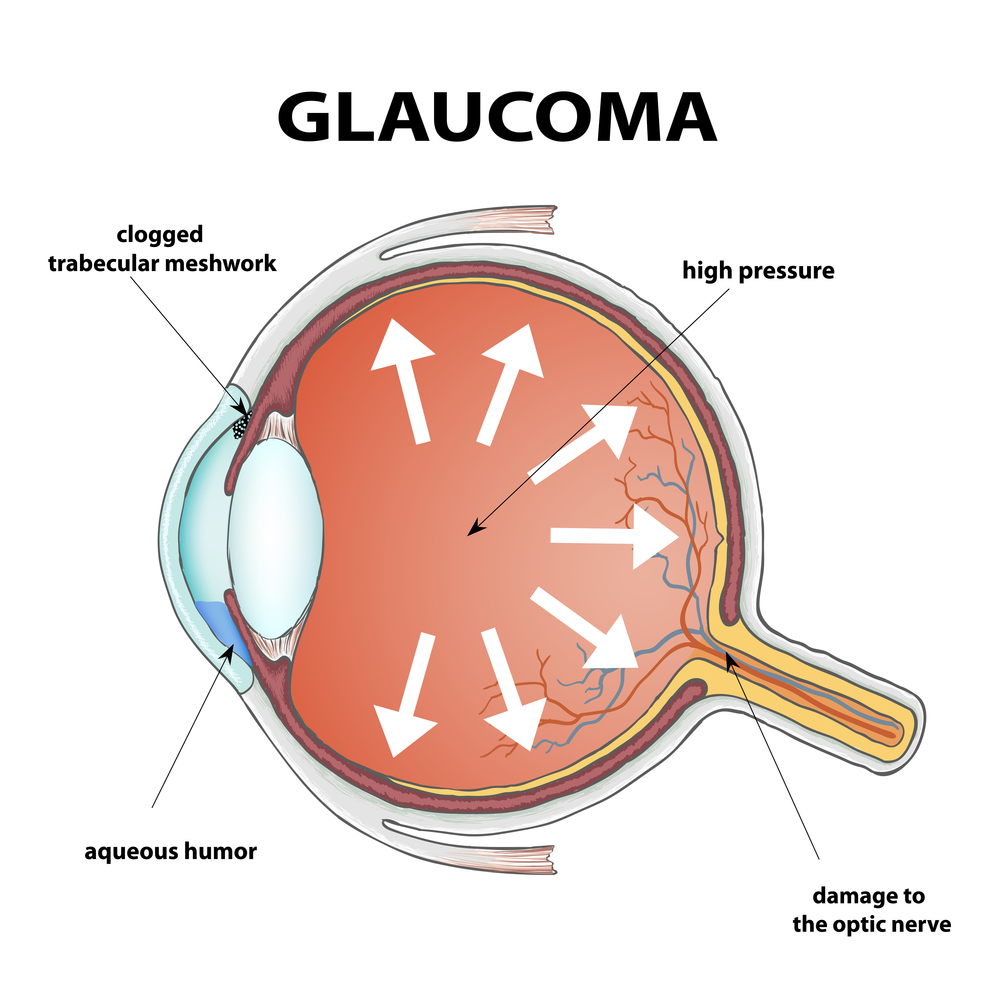Is Glaucoma Treatment Effective?
January 16, 2024
Glaucoma is one of the leading causes of blindness in adults over 60. There is no cure for glaucoma, and any vision loss due to the eye condition is permanent and irreversible.
Part of what makes glaucoma challenging for patients is it presents few if any, symptoms in the early stages of the eye condition. This is why it's often called the silent thief of vision.
However, the good news is that there are treatment options for glaucoma. Although you can't reverse its damage, the eye condition can be slowed down to prevent further vision loss.
Treatment is most effective when glaucoma is diagnosed and treated early. Since glaucoma doesn't show symptoms in the early stages, the only way to diagnose and treat it early is by having regular eye exams.
Keep reading to learn more about glaucoma and to find out if glaucoma treatment is effective!
What is Glaucoma?
 Glaucoma refers to a group of eye conditions that cause damage to the optic nerve. The optic nerve is what connects the eye to the brain.
Glaucoma refers to a group of eye conditions that cause damage to the optic nerve. The optic nerve is what connects the eye to the brain.
When the optic nerve becomes damaged, it cannot send all the information your eye receives to your brain, causing vision loss. The more damaged the optic nerve becomes, the more vision you'll lose.
In almost all forms of glaucoma, optic nerve damage is caused by high eye pressure, also known as intraocular pressure or IOP. Intraocular pressure building up usually occurs because the fluid that fills the eye, called aqueous, can't flow freely due to blockages in the drainage channels around the eye.
Open-Angle Glaucoma
The most common form of glaucoma is called open-angle glaucoma. The primary drainage angle for aqueous is the space between the cornea and iris.
When you have open-angle glaucoma, this angle is not blocked, but the other drainage channels, the trabecular meshwork, are jammed around the eye.
Angle-Closure Glaucoma
Another kind of glaucoma that patients may develop is angle-closure glaucoma. Angle-closure glaucoma is a rarer form that occurs when the iris bulges and closes off the primary drainage angle.
This often occurs quickly and causes apparent symptoms like eye pain, headache, bright lights, nausea, and vomiting. Patients may need emergency treatment to relieve pressure and prevent extensive optic nerve damage.
Symptoms of Glaucoma
Open-angle glaucoma doesn't show any symptoms in its early stages. There's no way to feel high intraocular pressure, and damage to the optic nerve doesn't cause any pain.
You only experience symptoms when the optic nerve becomes significantly damaged. The earliest symptoms of glaucoma are blind spots and blurriness in your peripheral vision.
As the eye condition continues to progress, you will notice tunnel vision. In the advanced stages of glaucoma, patients can only see a little in the very center of their vision, making them unable to see most things.
If you experience any loss in peripheral vision, see your eye doctor as soon as possible. Losing your peripheral vision is not a symptom that's exclusive to glaucoma.
However, experiencing any unusual changes to your vision should be checked by your ophthalmologist at Washington Eye Specialists. If it is glaucoma, they can determine the best way to move forward.
It's best to have glaucoma diagnosed before you experience any symptoms, as you cannot regain any vision loss. The best way to do this is through regular eye exams.
Learn More About Glaucoma
Diagnosing Glaucoma
To be diagnosed with glaucoma as early as possible, you must regularly have routine eye exams. Your eye doctor can examine your eyes for signs of glaucoma that you can't feel or see on your own.
One of the best tools for early diagnosis is checking your intraocular pressure. Your eye doctor can use several easy methods for measuring intraocular pressure.
If your intraocular pressure is elevated, they can look inside your eyes after dilating them to look for any optic nerve damage. You may have elevated intraocular pressure without glaucoma.
If this happens, your ophthalmologist may recommend preventative treatment. The best treatment for glaucoma is before you develop it or when it's still in the very early stages, so early detection is vital.
How often you need routine eye exams depends on your risk of developing glaucoma or other eye conditions. If you're considered at an increased risk for glaucoma, you'll need eye exams more frequently.
Know Your Risk
You're at higher risk for glaucoma if you:
- Are over 55
- Have a family history of glaucoma
- Have high blood pressure
- Have diabetes
- Are of African, Asian, or Native American descent
- Take corticosteroids frequently
- Are very nearsighted
Knowing your risk and talking to your eye doctor about it will help them understand how often you need eye exams. Most people at risk for glaucoma should see an eye doctor at least once a year. But your eye doctor can tell you how often you need eye exams.
Glaucoma Treatment Methods
There are several glaucoma treatments which aim to lower elevated intraocular pressure. Lowering intraocular pressure puts less strain on the optic nerve, preventing further damage. There are several treatment methods that your team at Washington Eye Specialists may recommend, including:
Medication
 Prescription eye drops that lower intraocular pressure are probably the most common treatment for glaucoma. Patients take these daily to help lower their intraocular pressure.
Prescription eye drops that lower intraocular pressure are probably the most common treatment for glaucoma. Patients take these daily to help lower their intraocular pressure.
Patients can also take them if they have elevated intraocular pressure and haven't developed glaucoma yet. These eye drops are very effective when taken as directed.
Surgery and Laser Treatments
Various surgical procedures and laser treatments can lower intraocular pressure by allowing better drainage of fluid from the eye. Some of these treatments are for patients with moderate to severe glaucoma, while some are appropriate for mild cases.
They can all be quite effective in preventing or slowing further vision loss. Treatment is unique for each patient, so your treatment plan may include a combination of medication, surgery, and laser treatment.
However, the most crucial step to effective treatment is early diagnosis. Are you at risk for glaucoma?
Make your eyes a priority by scheduling your appointment at Washington Eye Specialists in Washington, DC, to discuss glaucoma and the best way to treat it if you have it.



